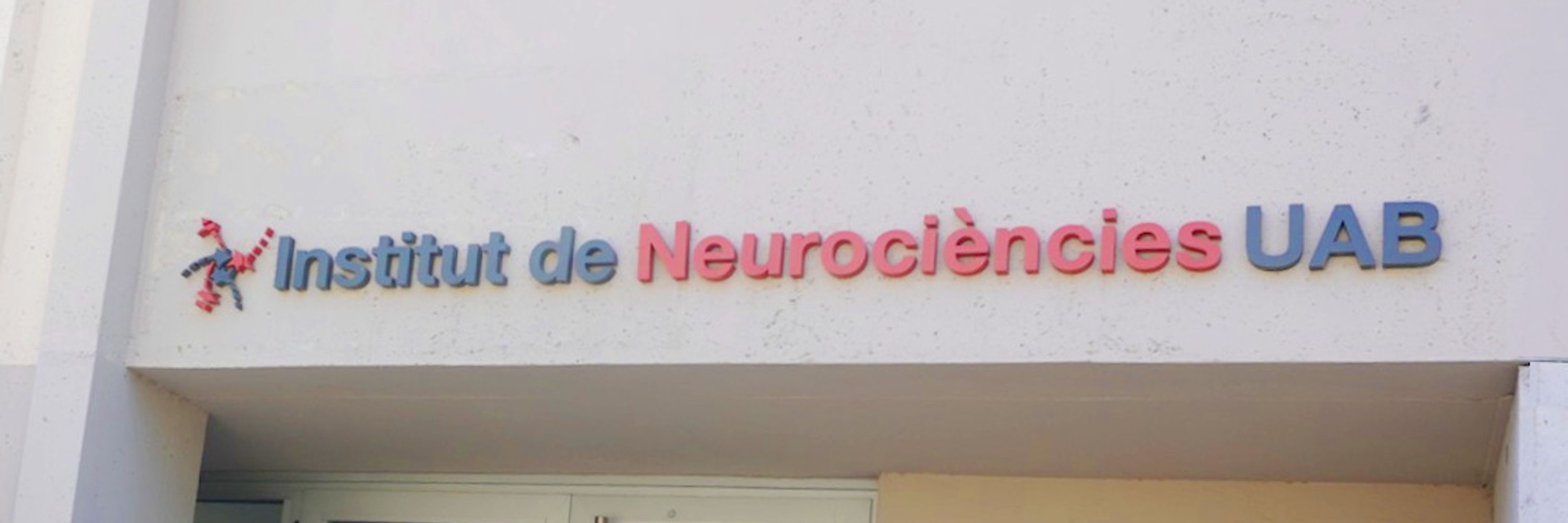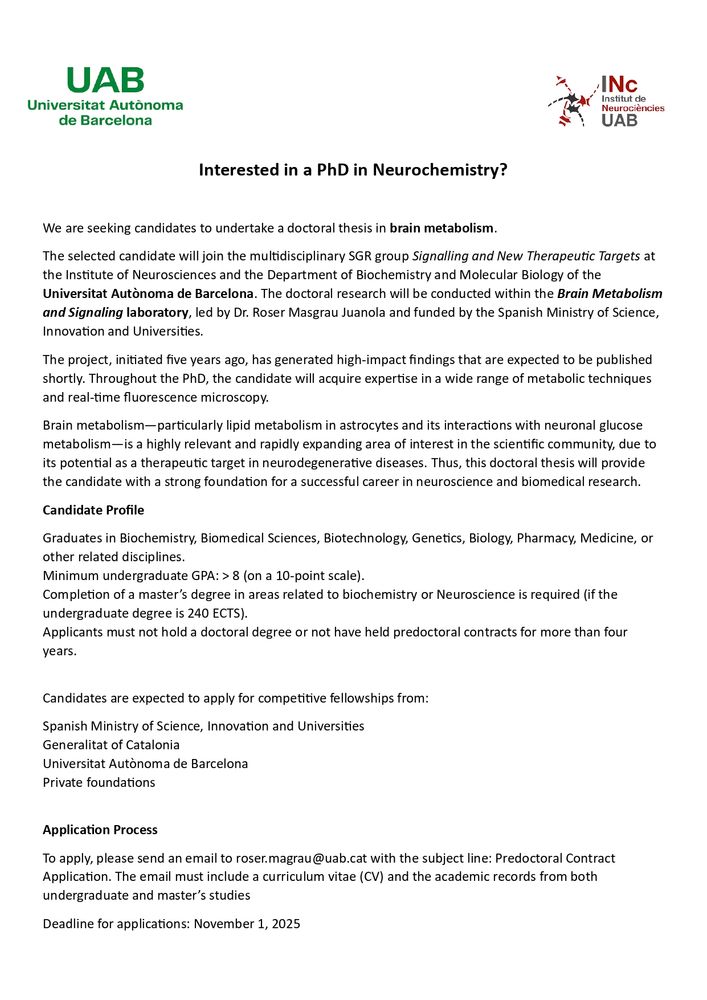Institut de Neurociències de la UAB
@incuab.bsky.social
150 followers
38 following
150 posts
Institute of Neurosciences placed at the Universitat Autònoma de Barcelona. Contact: [email protected]
Posts
Media
Videos
Starter Packs
Reposted by Institut de Neurociències de la UAB
Reposted by Institut de Neurociències de la UAB
Reposted by Institut de Neurociències de la UAB














